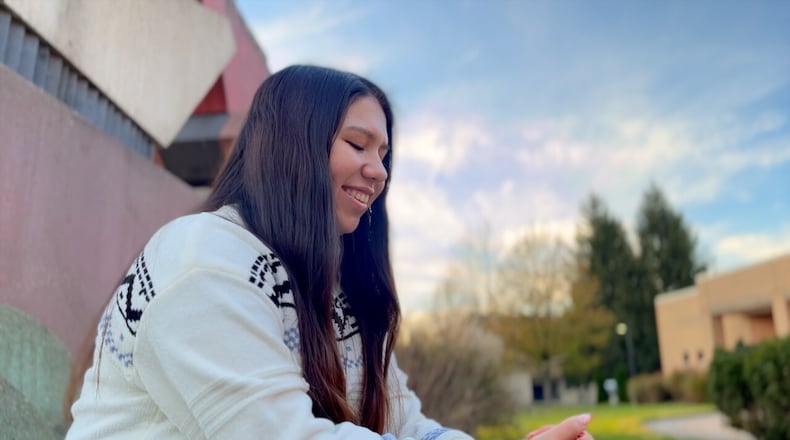“There’s this big idea of the American dream — that was part of it. But I really love education,” Diaz said. “It’s obviously a really difficult path.”
The 19-year-old started college in Peru, but quickly realized it wasn’t the best thing for her. She moved to the United States last year on a student visa. It’s been a culture shock. Some things, such as students wearing pajamas to class, make her laugh. Others, like the food, make her miss home.
“You really have to deal with sad emotions,” she said. “Sometimes, it’s a bit overwhelming.”
Diaz’s story is not unique. Local advocates tell us tell us problems with the language and adapting to a new culture can prevent foreign-born students from getting an education, even if they move here specifically for it.
“Sometimes it makes me cry because I know what these ladies are going through,” said George Sehi, the founder of the nonprofit Women Walking West. “And unless you’ve been through it, you don’t get it.”
Sehi has been through it, and he has the pictures to prove it. He holds them up to his face.
It’s a picture at the airport before flying to America.
“Every time I look at it brings back memories,” Sehi said.
Memories of his immigration journey from Iran.
“I came to this country in 1975,” he said. “I had $500 in my pocket and nothing else.”
His kids are tired of hearing about it. The airport. The money. The odd jobs he worked. But it’s central to who Sehi is. And it’s central to who he wants to help.
People like Diaz.
It’s why he started Women Walking West, a nonprofit that provides mentorship to women who come to America for their education.
“It’s not easy, but it gets better,” Sehi said.
With a little help, he eventually got a doctorate degree. And as a college dean, he often saw international students struggling, especially women. Sehi tells us one person the nonprofit helped fled Afghanistan because Taliban members told her if she went to school they’d kill her.
Inside the Women Walking West office, Sehi points to a map.
“I got to pinch myself every day I wake up in the morning,” he said. “We are currently assisting 230 women from 58 different countries.”
For Diaz, the group gave her a mentor. Someone who’s been in her shoes. More than that, it’s given her community.
And it’s part of the reason she’s studying to become a lawyer.
“I’m not the first one and I’m also not going to be the last one going through this,” Diaz said. “Many people need a lot of help, so maybe I can help them.”
About the Author

